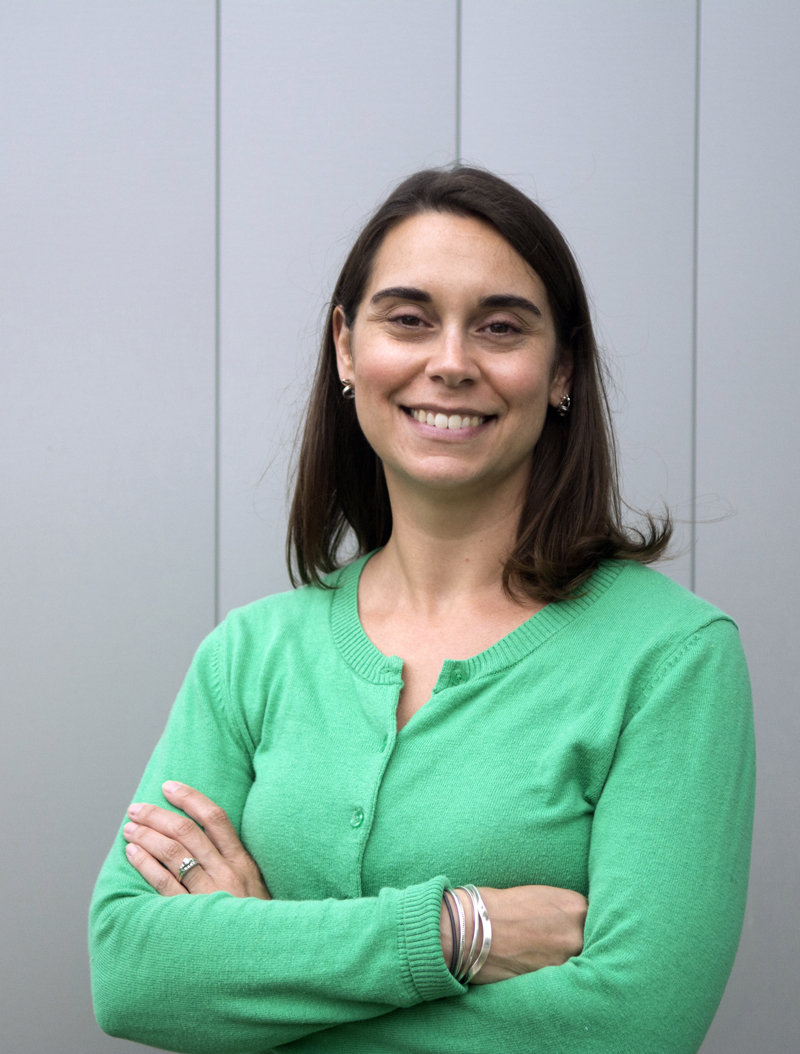
Stephanie Cheney
Stephanie Cheney sees potential for “students to shine, become leaders, and do things they would otherwise not be able to do” when empowered with technology. A proponent of project-based learning, Lincoln Academy’s new academic technology coordinator looks forward to realizing the possibilities of the school’s cutting-edge ATEC building while “working with students” directly to explore their interests.
Originally from Wiscasset, the Maine native wanted to return to her roots (her family is in the area) and was impressed by Lincoln Academy’s campus upon her arrival, noting how “ATEC is just beautiful,” and she looks forward to working in the space. Her role as academic technology coordinator will require her, in addition to working with students, to collaborate with faculty on integrating technology into their curriculum; also, she will teach two sections of AP computer science in the 2017-2018 academic year. She began her new position in August.
Cheney is interested in exploring partnerships with institutions of higher education as well as employers in order to better prepare students for life after Lincoln Academy. Drawing from her previous experience as curriculum and assessment manager for Southern New Hampshire University, she related a discovery she made with a colleague while contemplating a new cybersecurity program at the school. “We found that employers want specific certifications (instead of general four-year degree)” when hiring in that field,” meaning the educational programs preparing students would have to be incremental in nature. The experience inspired her current ambitions, which would realize those academic and career-track partnerships to enable students to receive professional certifications prior to graduation. Cheney cited a high school in Georgia where students could pursue drone-pilot certification, launching them into jobs with “six-figure salaries right out of high school,” as an example. Lincoln Academy could have those opportunities.
“The future is more and more technology-driven,” said Cheney, who sees her role as implementing the “use of technology to improve and enhance learning while recognizing its limitations.” Assuaging fears that teachers will be rendered obsolete by technology’s increasing role in education, she rebuked the notion by saying that, if anything, “teachers are more important than ever” as guides for the “appropriate and ethical use of technology” as well as “being good role models.”
Cheney began her work in education at Lake Region Public Schools after earning a bachelor’s degree in elementary education from the University of Maine Farmington and a master’s degree in computer technology and education from Thomas College. Starting at the middle school level, she later fell in love with secondary education at South Portland High School due to the greater possibilities for curriculum development, as “the content was so rich and interesting for me personally” and because “with older students, we were able to have higher-level conversations and make real-world connections to the lessons and projects.”
Cheney joined Southern New Hampshire University in 2014, where she was a key player in establishing College for America, an online program targeted at working adults pursuing postsecondary education. The program’s key aspect — and where Cheney’s role as curriculum and assessment manager came into play — was the emphasis on core competencies: prior skills that could be vetted through creation of a workforce-aligned deliverable, a key feature as “these students came to learning with lots of experience — being in marketing for 20 years, for example,” and a chance to demonstrate what they already knew made higher education accessible to the adult learner.
“It was an innovative concept,” said Cheney, who promoted her democratic ideals by stating that “education is a right, not a privilege,” and that SNHU, with its opportunities for students to “test out” of courses and learn at their own pace, made higher education possible for the people involved by lowering the cost.
The program made a difference in individual lives, and Cheney hopes to bring a personal touch and efficiency to her current role at Lincoln Academy, where she will apply her extensive experience in teaching, curriculum administration, innovation and technology, and working with faculty to the school.
In her spare time, Cheney gardens, hikes, and travels internationally, and is currently enrolled in yoga-teacher training.
She lives in Alna with her family.
(Nathan McIvor is a 2017 graduate of Lincoln Academy who recently completed an internship in the LA communications office. He will begin his studies at the University of Maine Farmington later in August.)



